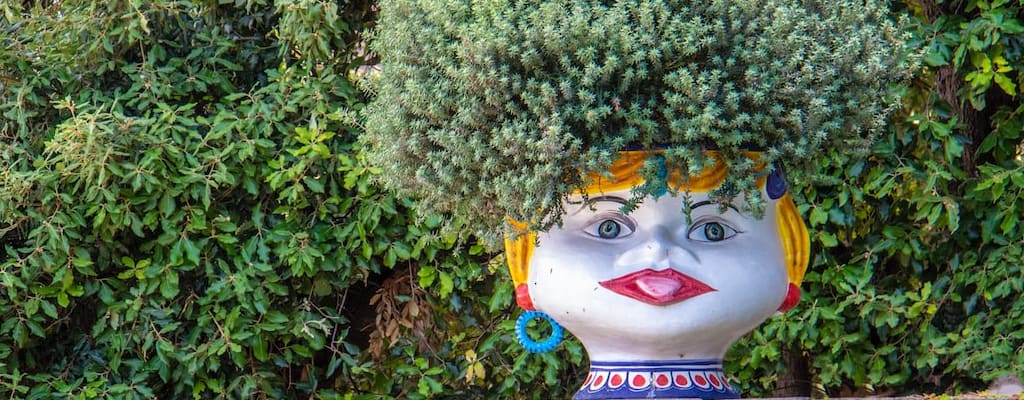strange bedfellows: Idiom Meaning and Origin
What does ‘strange bedfellows’ mean?
The idiom "strange bedfellows" refers to an unlikely or peculiar alliance or association between individuals or groups who are normally opposed or different from each other.

Idiom Explorer
The idiom "sleep together" means to have sexual intercourse. It is a euphemistic expression that refers to the act of two people sharing a bed for sexual activity.
The idiom "salad" refers to a mixture or combination of various things or elements that do not seem to go well together. It implies a lack of harmony or coherence in a particular situation or context.
The idiom "queer fish" is used to describe someone who is strange, eccentric, or unconventional.
The idiom "poles apart" means two things or people being extremely different or having opposite opinions or beliefs.
The idiom "oil and water" describes two things or people that do not mix well or cannot coexist harmoniously due to fundamental differences or incompatible qualities.
The idiom *odd fish* refers to a person who is unusual or eccentric in their behavior or appearance.
The idiom "odd duck" refers to a person who is strange, eccentric, or unconventional compared to others. They stand out in a peculiar way and are often seen as different or unusual.
The idiom "odd and curious" is used to describe something that is strange, unusual, or peculiar. It implies a sense of intrigue or fascination about the subject.
"Never the twain shall meet" means two things or people are so different or incompatible that they will never come together or understand each other.
The idiom "neither fish nor fowl" refers to something or someone that doesn't fit into any particular category or group. It suggests a lack of identity or definition, making it difficult to classify or understand.
FAIL
The idiom "strange bedfellows" has been used in the English language since at least the early 19th century. Its exact origin is uncertain, but it is believed to have developed over time. This idiom is used to describe a situation where two or more people or things are unexpectedly allied or connected. It suggests that these individuals or entities have come together despite their differences, often driven by circumstances rather than shared values or beliefs.
One of the related idioms to "strange bedfellows" is "couldn't be more different." This phrase emphasizes the stark contrast between the parties involved. It implies that despite their differences, they are still aligned or connected in some way. When found in the same situation, these unlikely allies become strange bedfellows.
Another related idiom is "birds of a feather flock together." This phrase suggests that individuals with similar interests, backgrounds, or beliefs tend to associate with one another. On the surface, this idiom appears to contradict the concept of "strange bedfellows." However, in reality, there are instances when even those who are like-minded can become strange bedfellows due to unforeseen circumstances or temporary alliances.
The idiom "birds of a feather" is also related to "strange bedfellows." This phrase is often used to imply that individuals who are similar in some way naturally gravitate towards each other. However, it is important to remember that even birds of a feather can make strange bedfellows when faced with unexpected situations that require them to work together.
Another related idiom is "oil and water," which is used to describe two things or people that do not mix well or cannot coexist harmoniously. This phrase highlights the differences or conflicts between the parties involved. When strange bedfellows come together, it is like oil and water trying to mix. Their differences may cause friction, but they are still connected or aligned in some way.
The idiom "strange bedfellows" can be applied in various contexts, including politics, business, art, and personal relationships. In politics, it is often used to describe alliances or partnerships between individuals or groups who would not normally work together. This occurs when parties with different ideologies or agendas unite for a common cause or when former adversaries temporarily join forces. The phrase "politics makes strange bedfellows" perfectly captures this idea.
In business, unexpected collaborations can also arise, especially when companies with different specialties or approaches decide to work together on a project. These unlikely partnerships can lead to innovation and unique solutions. The idiom "strange bedfellows" can be used in this context to describe the surprising alliances formed.
The art world is another area where strange bedfellows can emerge. Artists from different backgrounds or with contrasting styles may collaborate on a project, bringing together their diverse perspectives and creative ideas. These unexpected partnerships can result in thought-provoking and boundary-pushing works of art.
Even in personal relationships, the idiom "strange bedfellows" can be applicable. People who may not have much in common or seem like an unlikely match can still connect and form bonds that defy expectations. It is not unusual to see couples who, on the surface, couldn't be more different, yet find love and happiness together.
It is worth noting that the idiom "strange bedfellows" is often used in a humorous or ironic manner. Its figurative meaning and vivid imagery make it a memorable phrase that effectively conveys the idea of unlikely collaborations. This idiom has stood the test of time and continues to be a part of the English language due to its versatility and ability to capture complex concepts in a concise and memorable way.
The idiom "strange bedfellows" describes unexpected alliances or connections between people or things. It is a phrase that has been used for centuries and continues to be relevant in various contexts, including politics, business, art, and personal relationships. Whether it's two individuals who couldn't be more different, birds of a feather flocking together in an unexpected situation, or oil and water trying to mix, strange bedfellows can arise when circumstances bring unlikely parties together. It is a colorful expression that highlights the contrast, surprise, and sometimes irony of these unlikely collaborations.
Example usage
Examples of how the idiom "strange bedfellows" can be used in a sentence:
1. "Although they have very different political ideologies, the two politicians formed a partnership to work on a common social issue. They are truly strange bedfellows."
2. "The merger between the two competing companies surprised everyone in the industry. It was definitely a case of strange bedfellows."
3. "The collaboration between the famous musician and the lesser-known artist seemed unusual at first, but their combined talents created a masterpiece. They proved to be strange bedfellows in the world of art."
More "Relationships" idioms



